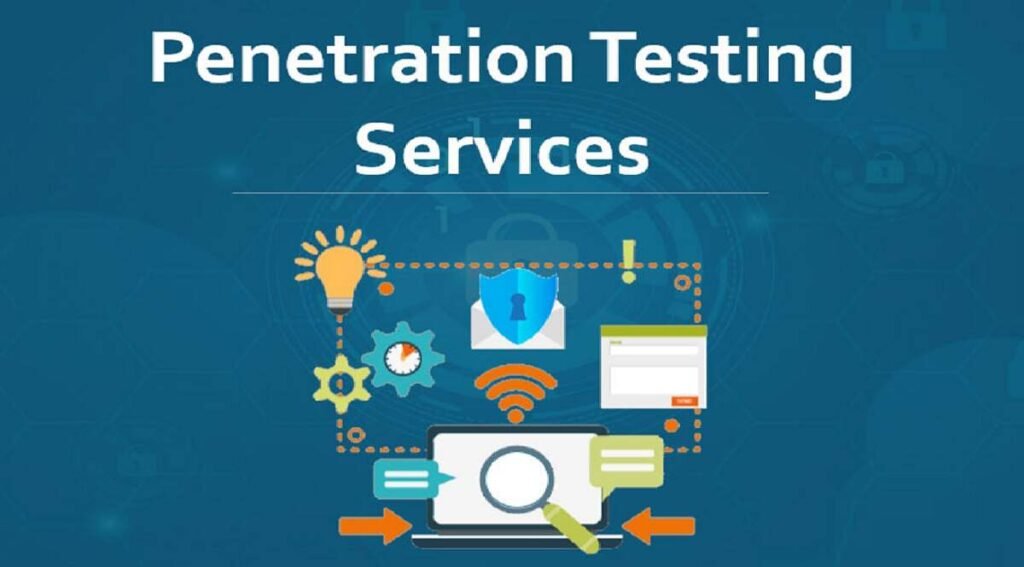Penetration Testing Service Provider is a company or individual specializing in assessing an organization’s IT infrastructure by simulating cyberattacks. Their primary goal is to identify potential vulnerabilities in systems, networks, and applications before malicious hackers exploit them. This proactive approach helps businesses secure their assets.
Understanding Penetration Testing
Penetration testing, or ethical hacking, involves attempting to breach the defenses of a company’s digital environment to expose weaknesses.
Types of Penetration Testing
- Network Penetration Testing: Focuses on the company’s network to uncover security gaps.
- Web Application Penetration Testing: Looks for vulnerabilities within web-based applications.
- Wireless Penetration Testing: Targets weaknesses in wireless networks.
Penetration Testing vs. Vulnerability Scanning
Unlike vulnerability scanning, which is automated and broad, penetration testing is a focused, hands-on process where ethical hackers manually attempt to exploit vulnerabilities, providing a more detailed insight into the security posture.
Importance of Penetration Testing
Identifying Vulnerabilities in Advance
By simulating real-world attacks, penetration testing allows businesses to find potential entry points and mitigate them before an actual attack occurs.
Strengthening Security Protocols
Regular testing helps companies continually adapt and strengthen their defenses. A penetration testing service provider will not only find weaknesses but also recommend specific improvements to prevent future breaches.
Why Do Businesses Need Penetration Testing?
Preventing Cyberattacks
With the increasing sophistication of cyberattacks, businesses are under constant threat. Penetration testing offers a shield by testing how vulnerable a business is and showing how attackers could exploit those weaknesses.
The Rising Cybersecurity Threat Landscape
From phishing attacks to ransomware, the tactics cybercriminals use are becoming more advanced. With a trusted penetration testing service provider, businesses stay one step ahead.
Compliance with Industry Standards
Many industries require companies to conduct regular penetration testing to comply with standards like PCI-DSS, HIPAA, and ISO 27001.
Meeting Regulatory Requirements
Without compliance, companies risk facing hefty fines and reputational damage. Penetration testing ensures that businesses meet the necessary cybersecurity regulations.
How Penetration Testing Service Providers Operate
The Process of Penetration Testing
Planning and Information Gathering: Penetration testing begins with an initial assessment, where the service provider gathers relevant data about the target environment.
Testing and Exploitation: In this phase, testers use various methods to attempt to breach the system. If successful, they document how they gained access and what damage could be done.
Reporting and Recommendations: After testing, a detailed report is provided with identified vulnerabilities, the impact of exploitation, and steps to rectify the issues.
The Role of Ethical Hackers
Ethical hackers, or white-hat hackers, are security experts who attempt to penetrate systems to highlight weaknesses. They collaborate with information security teams to ensure organizations remain secure.
Follow Us: Trady Zone
Skills Required for Penetration Testing
A competent penetration tester possesses knowledge in areas such as network security, coding, and cryptography.
Collaboration with Information Security Teams
By working closely with internal security teams, a penetration testing service provider ensures that discovered vulnerabilities are swiftly addressed.
Key Benefits of Hiring a Penetration Testing Service Provider
Cybersecurity Assessment Services
Penetration testing service providers offer cybersecurity assessment services, giving companies a comprehensive overview of their security stance.
Comprehensive Network Security Testing
Network security is essential for safeguarding sensitive data. Providers test network configurations to identify potential weaknesses.
Vulnerability Assessment Solutions
Along with testing, service providers offer vulnerability assessment solutions to continually monitor systems and address new threats.
Continuous Monitoring and Improvement
The role of a penetration testing service provider doesn’t end with a single test. They offer ongoing support to help businesses stay resilient.
Choosing the Right Penetration Testing Service Provider
What to Look for in a Provider
When selecting a penetration testing provider, it’s essential to evaluate their experience, tools, and methodologies.
Experience in Ethical Hacking Firms
Choose a provider with a proven track record in ethical hacking firms who have worked with companies similar to yours.
Expertise in Information Security Consulting
The best providers offer not only testing but also information security consulting, helping businesses craft a stronger security strategy.
Conclusion
Penetration testing service providers are indispensable in today’s cybersecurity landscape. Their ability to simulate attacks, identify vulnerabilities, and recommend solutions makes them a vital partner for any business aiming to safeguard its digital assets. Investing in regular penetration testing is not just about compliance—it’s about building a robust defense system that adapts to evolving cyber threats.
FAQs
What industries benefit the most from penetration testing?
Any industry handling sensitive data—like finance, healthcare, and e-commerce—will benefit greatly from regular penetration testing.
How often should penetration testing be performed?
It’s recommended to conduct penetration testing annually or after significant system changes.
What’s the difference between penetration testing and vulnerability assessment?
While both identify security risks, penetration testing simulates actual attacks, while vulnerability assessments are more automated and broader.
Do penetration testing services disrupt business operations?
No, ethical hackers perform testing in a controlled environment, ensuring minimal disruption to regular business activities.
How long does a typical penetration test take?
The duration can vary depending on the scope, but most penetration tests take anywhere from a few days to a couple of weeks.
Read More: Employee Performance Evaluation Software


